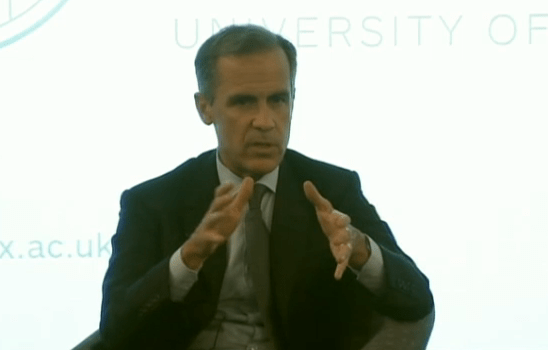I suspect that Mark Carney set out to strengthen the case for Britain staying in the European Union with his remarks in Oxford tonight, but his intervention may end up having the reverse effect. First, the Bank of England governor did not talk about the advantages of staying inside the EU. He spoke about the advantages of Britain being part of a free trade block; as Boris Johnson argues in the new Spectator this is still likely even if we vote to leave.
Here’s what he said:-
‘Broadly speaking, the evidence suggests that the UK has successfully harnessed the benefits of openness afforded by its EU membership while avoiding some of the drawbacks of reduced flexibility from which some continental European economies suffer.’
In other words, the single market helped – and we didn’t join the Euro, thus avoiding what William Hague so aptly described as a ‘burning building with no exits.’
Carney added that the UK is ‘the leading beneficiary’ of the free movement of goods, services, capital and labour enshrined in European treaties. But he did not suggest that this would be under threat were we to leave. He spoke historically:-
‘Taken together, these measures promote competition and spur innovation which ultimately benefits us all. Overall, EU membership has increased the openness of the UK economy, facilitating dynamism but also creating some monetary and financial stability challenges for the BoE to manage. Thus far, we have been able to meet these challenges.’
Spot the bit where he advises staying in the EU, rather than reneogtiate Norway-style country club membership? Me neither. That said, Carney is a rather political fellow – as we saw with his intervention in the Scottish independence referendum. His words were presented to suggest his intervening on the ‘in’ campaign. And this is his mistake.
The biggest danger facing the ‘in’ campaign is that it is seen as the combined voice of the British elite. If the Bank of England is positioning itself on the ‘in’ side, then this adds to this impression. As Sweden found out, when the entire establishment says ‘vote yes’ then the temptation to vote no can become irresistible.







Comments